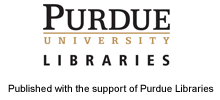Abstract
The objective of the study was to examine the anthropometric and physiological responses to a prolonged period of open water rowing 4950 km. A single male (novice) rower underwent assessment of anthropometric variables, pre- and post-race, for the assessment of mass (kg), girths of selected regions, skinfold thickness and regional muscularity. The results showed that following 61 days of continual rowing there was a decrease in the participant's mass by 11.7%, sum of skinfolds decreased by 19.5 cm and regional muscularity decreased by 11.1 %. The data would suggest that the participant exhibited symptoms of muscle atrophy and energy deficit. It was concluded that poor dietary intake and the ability of the participant as a rower produced the significant changes in body composition. These data have profound implications when devising both training programs and dietary programs for athletes competing in such extreme events.
Recommended Citation
Gordon, Dan A.
(2003)
"Anthropometric and Physiological Responses to Prolonged Open Water Rowing: A Case Study,"
Journal of Human Performance in Extreme Environments: Vol. 7
:
Iss.
2,
Article 3.
DOI: 10.7771/2327-2937.1028
Available at:
https://docs.lib.purdue.edu/jhpee/vol7/iss2/3
